Brazil vote could jump-start free trade agreement
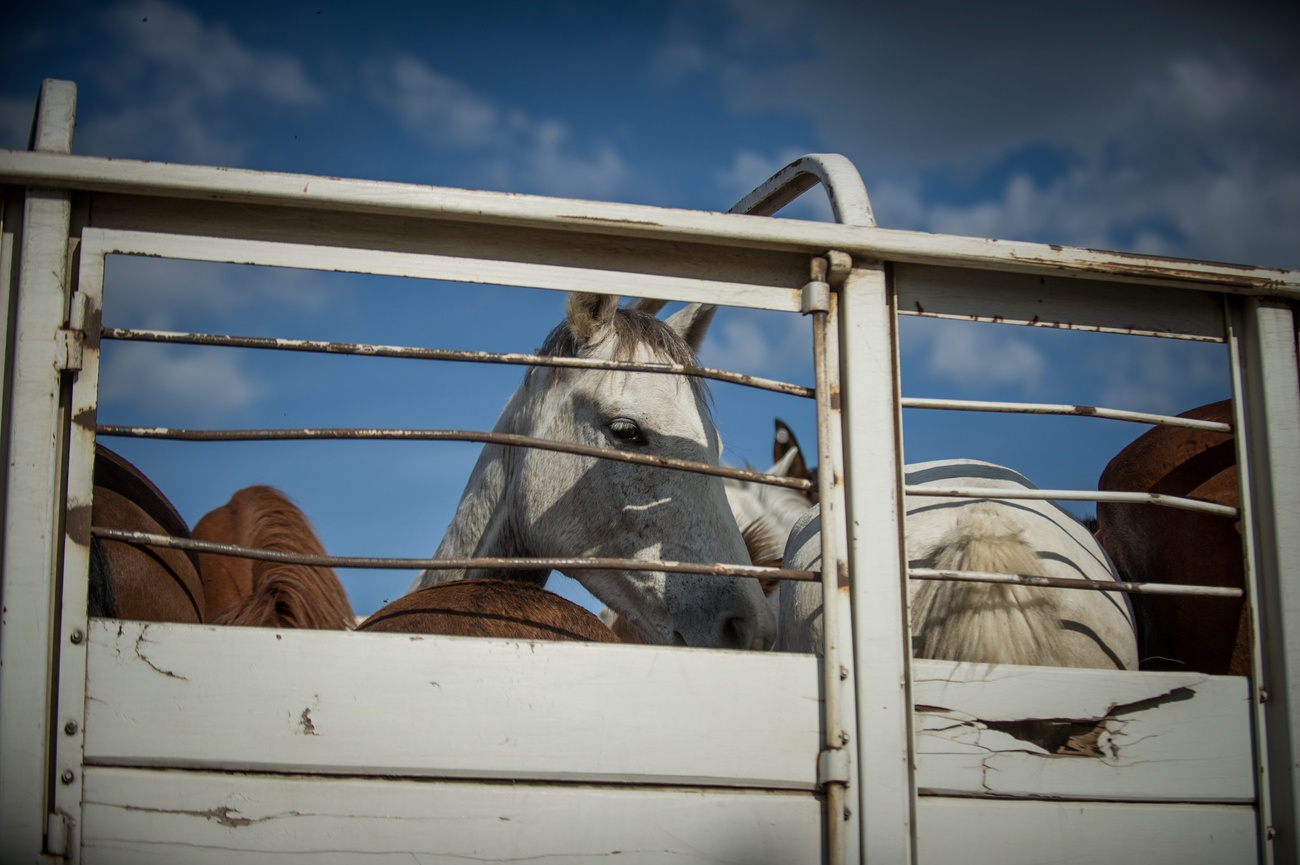
As Latin America opens up to Asia, finalising a free trade agreement (FTA) with European countries has taken a back seat. For Switzerland, which is keen to ratify an FTA, the upcoming general elections in Brazil could prove crucial.
The Lula government was the most corrupt in the history of Brazil, said current president Jair Bolsonaro during a televised debate with his opponent, ex-president Luiz Inácio Lula da Silva. Lula shot back: “This country that I ruled is a country that the current president is intent on destroying.”
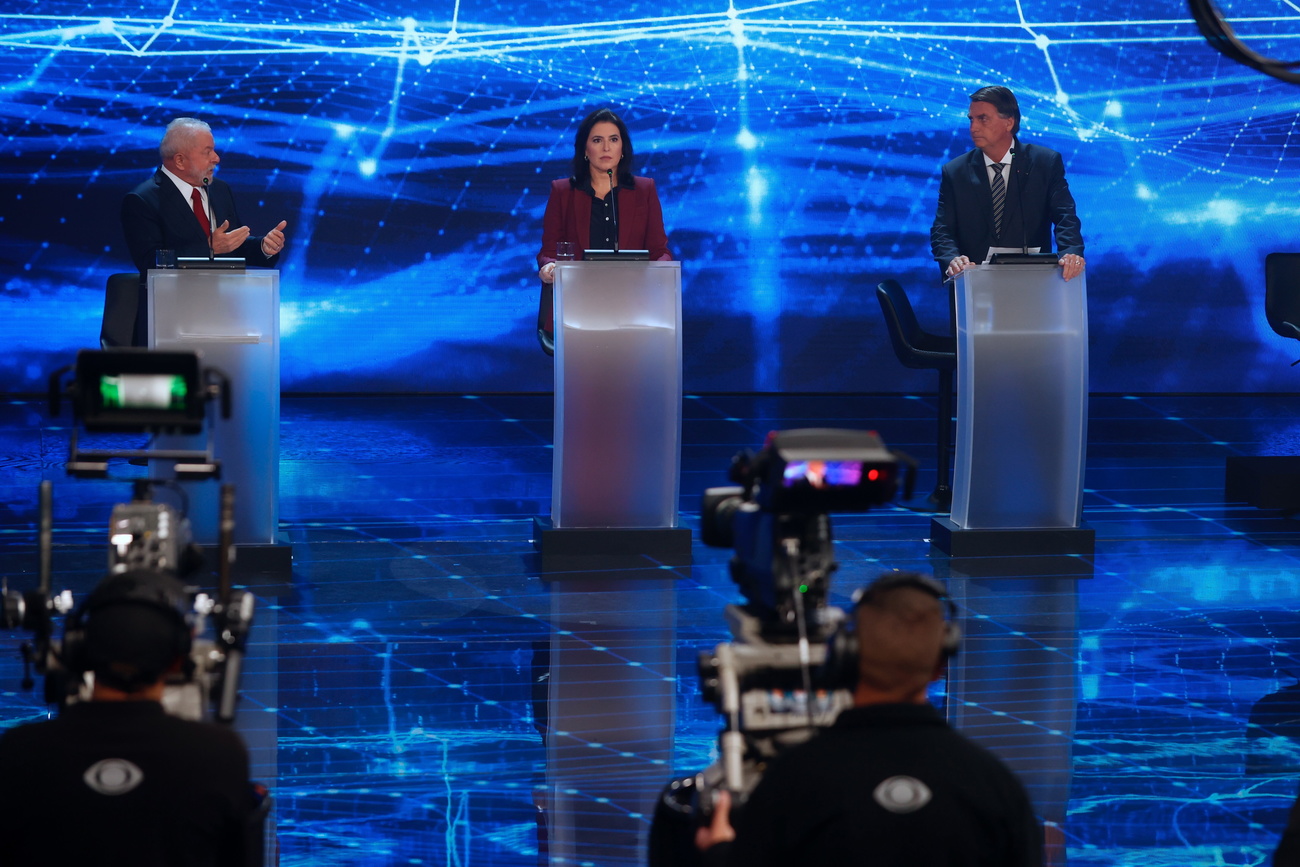
Campaigning is underway for the general elections in Brazil, scheduled for October 2. Switzerland is keeping a close eye on it all, since whoever becomes president will have a say in whether the Alpine country can get access to the Latin American market.
A deal on hold
Together with other members of the European Free Trade Association – Norway, Liechtenstein and Iceland – Switzerland has negotiated a free trade agreement with Mercosur countries: Argentina, Brazil, Paraguay and Uruguay. But it is not clear when this agreement is going to be ratified.
According to the State Secretariat for Economic Affairs (SECO), delays can be traced back to a change of government in Argentina and the global pandemic. But other factors, namely diverging interpretations of the text that still need to be sorted out, are also to blame.
From an economic point of view at least, the agreement is suitable for ratification by Switzerland, says Manfred Elsig, head of research at the World Trade Institute of the University of Bern. The concerns of the Swiss agricultural sector over liberalisation have been largely dealt with.
“The problem is that the current Brazilian president and his policy on the Amazon have come in for considerable disapproval in Switzerland,” says Elsig. “NGOs see a trade agreement as the wrong signal to be sending.”
In fact protests have erupted both in Latin America, where activists have branded the agreement “neo-colonialist”, and in Switzerland, where it’s been called “climate policy madness”.
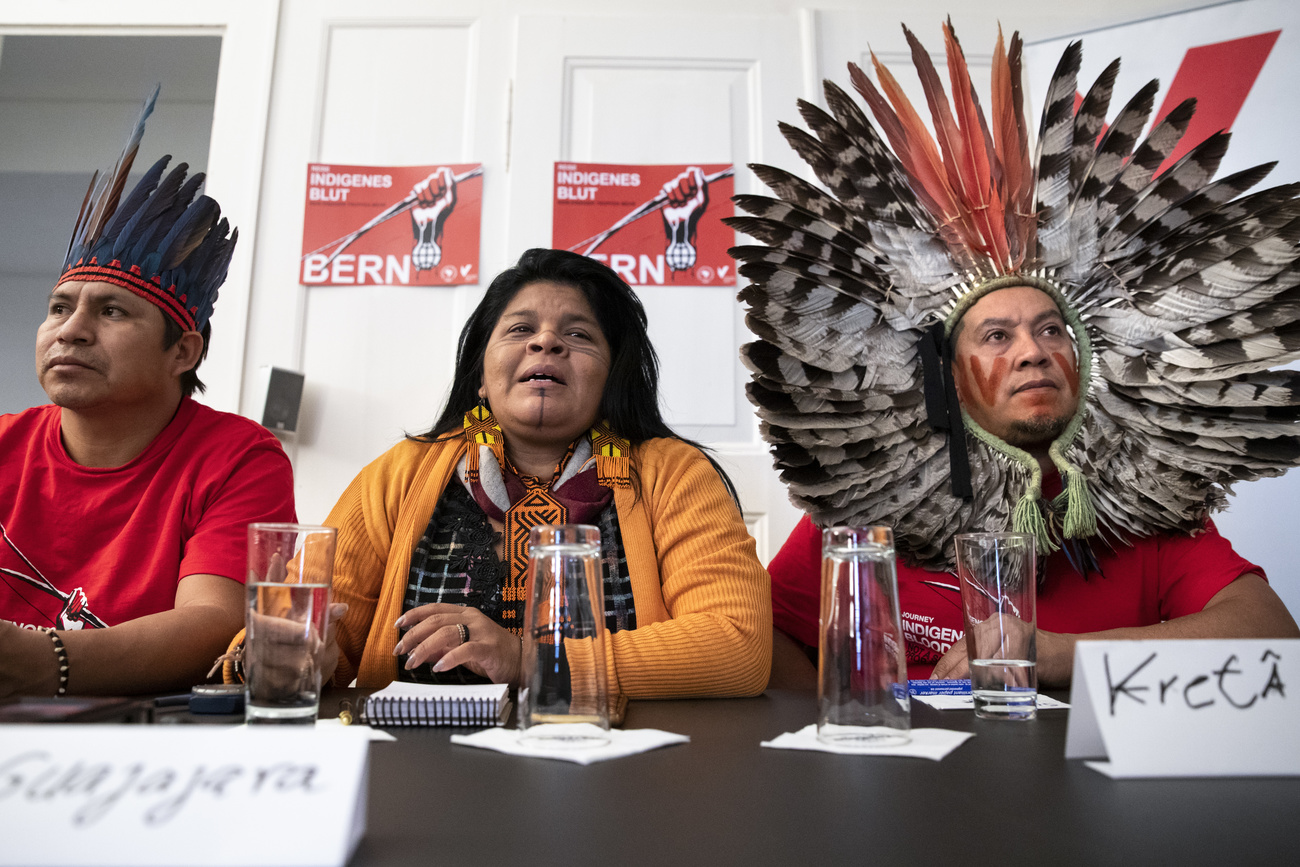
So NGOs would not be unhappy if this FTA were to be left in a bottom drawer and forgotten, as Alliance Sud, a coalition of Swiss NGOs engaged in development cooperation, told SWI swissinfo.ch.
Profits versus the environment
In the European Union too, the wholesale destruction of the rainforest in Brazil is proving an obstacle to ratification of a free trade agreement that Brussels has spent decades negotiating with Mercosur. The European Parliament is insisting on environmental reform.

The EU isExternal link hoping that the elections in Brazil will be good for the Mercosur agreement, and that with a little help from Brazil it can finalise supplementary agreements by the end of the year.
Such an outcome would suit Switzerland just fine, as the trade dispute between the EU and Mercosur is delaying ratification of the EFTA agreement.
“We share the EU’s concern about environmental issues and are talking with the European Commission,” said SECO in a statement. But the department also points out that the EU-Mercosur agreement is different, since it includes trading in environmentally sensitive products. The EFTA-Mercosur deal, on the other hand, will have no significant environmental impact, as a study by the University of BernExternal link has shown. Initial calculations predict the free trade agreement will increase timber harvesting in the Mercosur countries by 0.02% or in the worst case scenario by 0.1%. The authors of the study, however, are predicting a lower or even non-existent effect.
Switzerland does not need to wait for the EU’s negotiations with Mercosur to wrap up, says Elsig. There seems to be more opposition in the EU than there is in Switzerland.
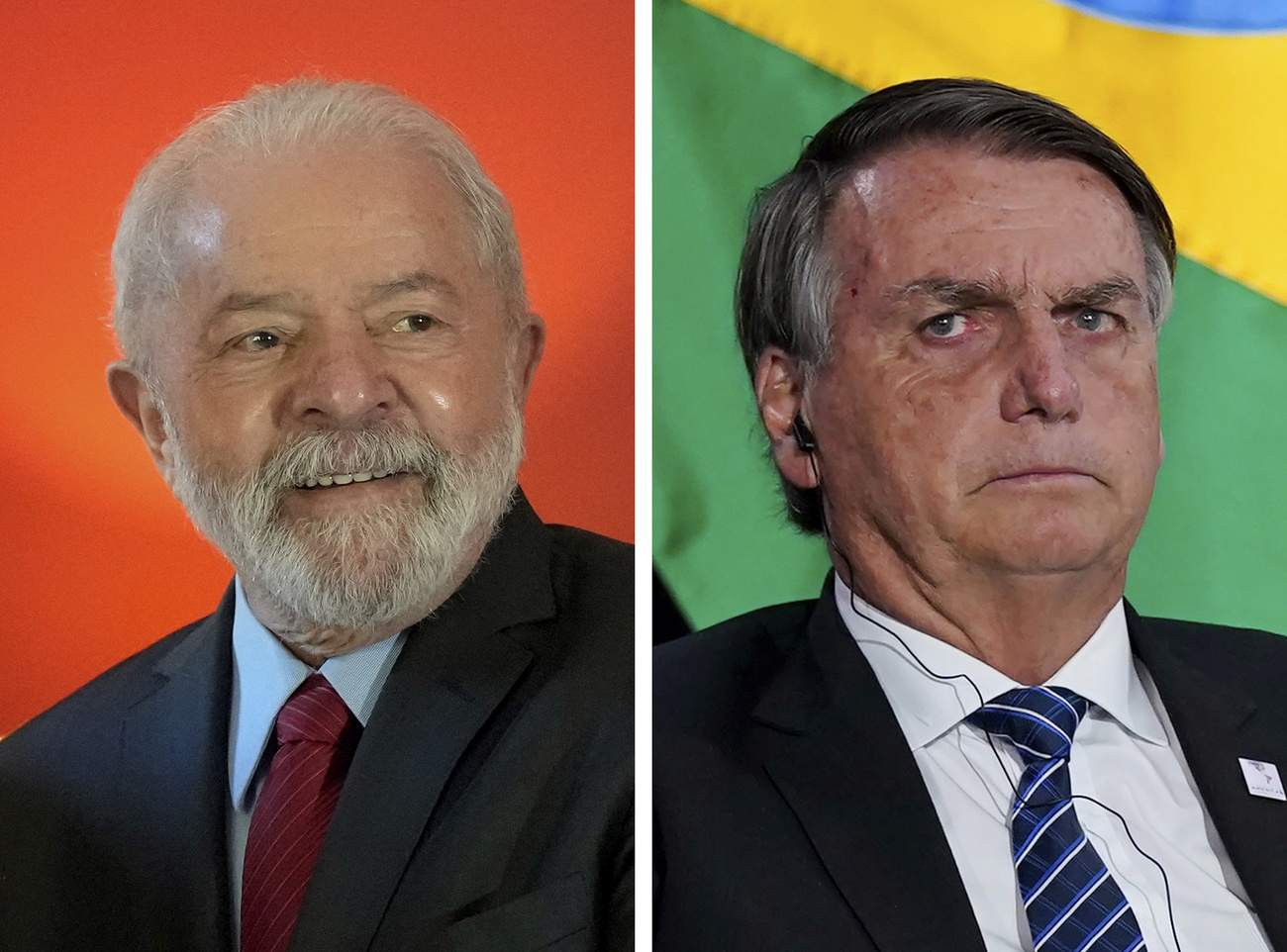
Lula or Bolsonaro?
Bolsonaro is currently down in opinion polls. The EU has high hopes for Lula, who has promisedExternal link (in a statement to Reuters) that he will review the deal with the EU and even add on clauses to protect human rights and the environment, so the whole thing can finally be ratified.
“We are assuming that a government led by Lula would be motivated to finalise the agreements,” says SECO.
This, however, could simply be a hollow election promise. Philippe G. Nell, honorary ambassador of the Swiss-Latin-American Chamber of Commerce, points out that, during his first two presidential terms, Lula put the emphasis not on free trade involving Mercosur, but on making progress in social reforms at home. If he is elected for a new term, Lula plans to concentrate on South-South cooperation involving Africa and Latin America.
“So Lula and his Workers’ Party will do their best to strengthen Brazil as an economic power in Latin America, without exposing it to more competition from a free trade agreement with industrialised countries,” says Nell. This would mean that the chances of getting an FTA for EU or EFTA countries would be slim under a Lula presidency.
Brazilian Senator Nelsinho Trad heads the Swiss-Brazilian parliamentary friendship groupExternal link founded in April 2022. He concedes that the president will have an important role in setting foreign trade policy, but notes that the national parliament gets to ratify international agreements.
“Congress has had no opportunity as yet to discuss ratification of the free trade agreement between Mercosur and EFTA,” he says. Trad remains convinced that parliament will accept this agreement. The Brazil-Switzerland parliamentary group, he says, is an instrument for exchanging ideas and could contribute to the discussion in the Brazilian senate.
For his part, honorary consul Nell has misgivings about the ongoing crisis in neighbouring Argentina. With one of the highest inflation rates in the world and serious difficulties with its balance of payments, the government there is not likely to want to open its economy any further to international competition.
Argentine president Alberto Fernandez is calling for more market concessions from the EU import regime and, by extension, from EFTA as well.
“There would be a similar movement if Lula gets elected in Brazil,” says Elsig. Although Lula is more sympathetic to the environmental cause, he will want better market access for his own country’s industry and agricultural sector.
Asia or Europe
The signs are there that Mercosur may focus on opening up to Asia instead of Europe. Recently, Mercosur finished negotiating a free trade deal with Singapore, and similar negotiations are underway with South Korea. Brazil would like to discuss an agreement with Indonesia, and Uruguay wants to take up free trade with China – on its own, if necessary.
South America has raw materials, manufactures foodstuffs, and is a very large market. This makes the region an attractive economic partner, especially considering the effects of the war in Ukraine on global trade and commodity prices.
The EU stated recentlyExternal link that it considers the free trade agreement with Mercosur a priority, in order to gain ground on China in Latin America.
Switzerland is also committed to an FTA.
“We aim to finalise this agreement as soon as we can,” says SECO. Better access to Mercosur markets would be of great value to Swiss business. “In these turbulent times, stable conditions for our exporters are of central importance.” With this agreement the government believes that in the middle term about 95% of Swiss products would be free of tariffs in the Mercosur countries.
“It is too early to think of consigning this agreement to the bin,” says Elsig of the World Trade Institute. It would not take much for the EFTA-Mercosur treaty to garner the political support it needs on both sides.
In that case, the NGOs would have been to quick in foretelling the failure of this cross-continental agreement.
Edited by Balz Rigendinger
Adapted from German by Terence MacNamee/gw

In compliance with the JTI standards
More: SWI swissinfo.ch certified by the Journalism Trust Initiative












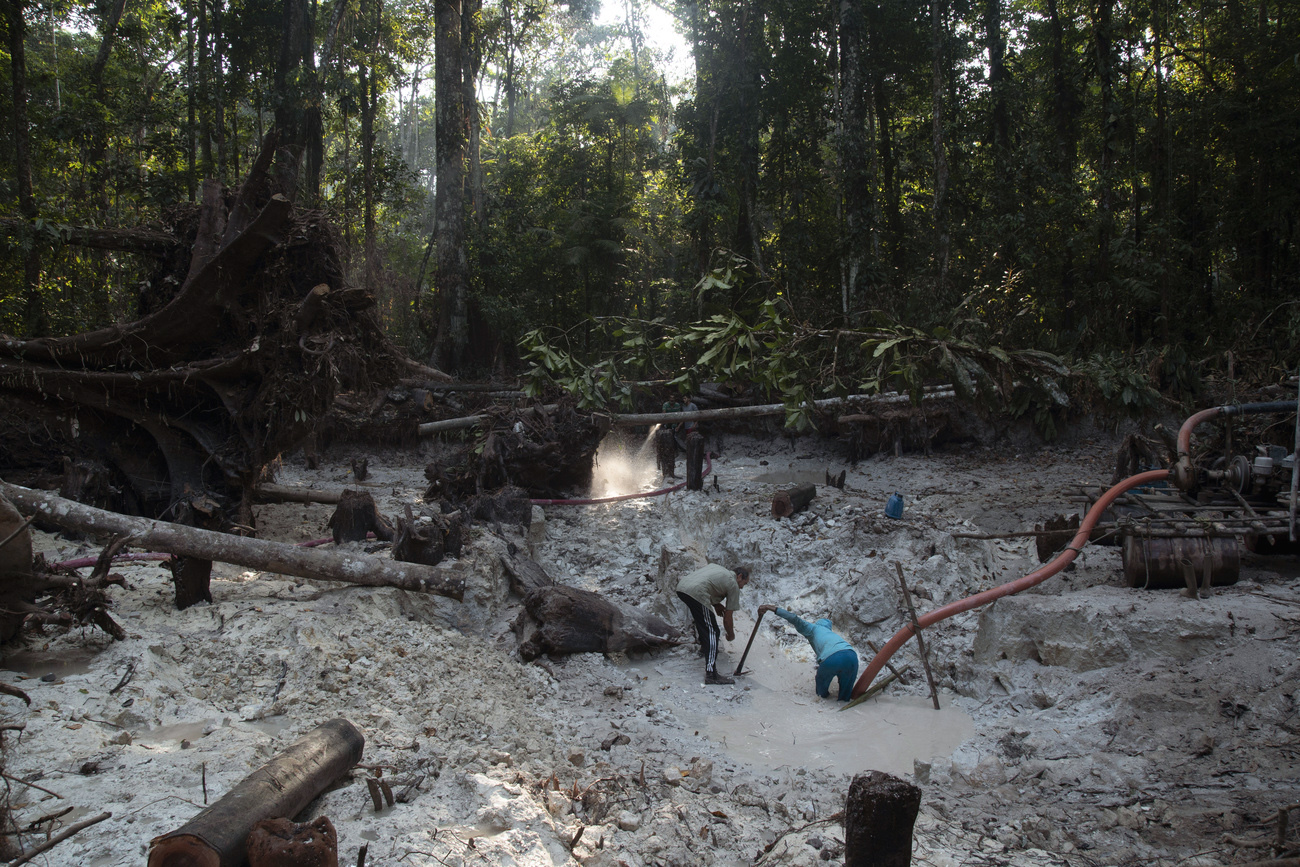
You can find an overview of ongoing debates with our journalists here . Please join us!
If you want to start a conversation about a topic raised in this article or want to report factual errors, email us at english@swissinfo.ch.